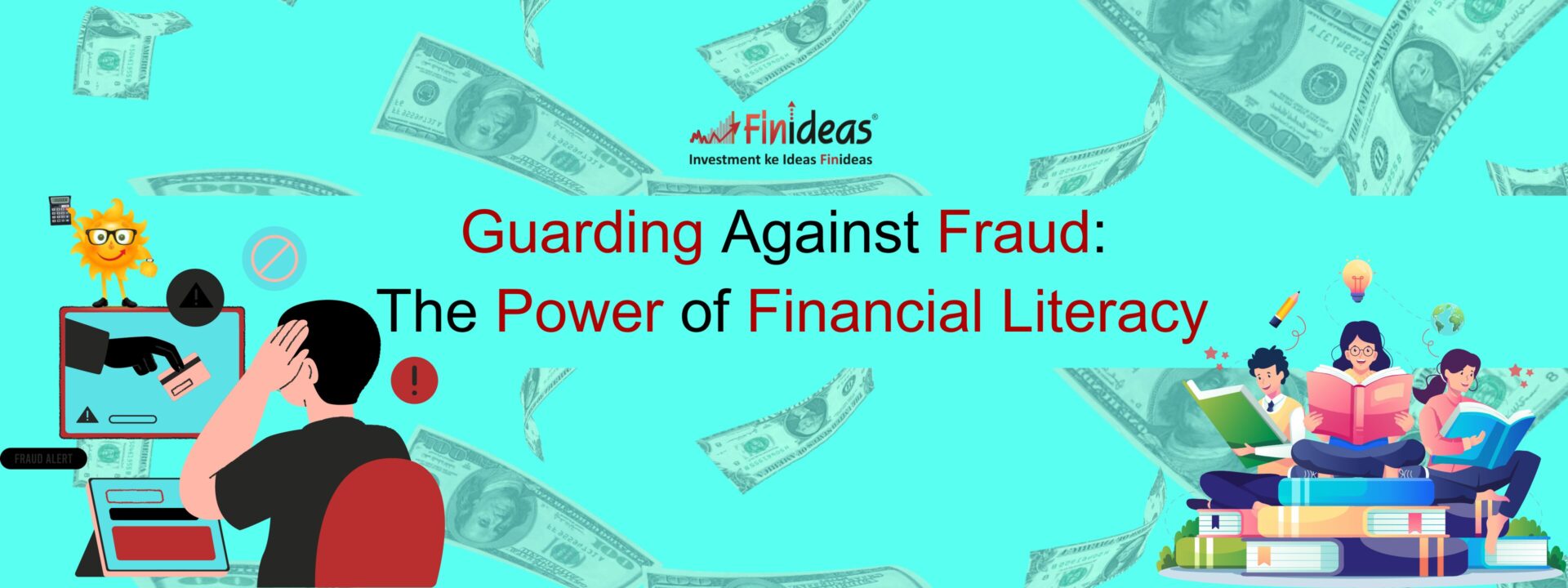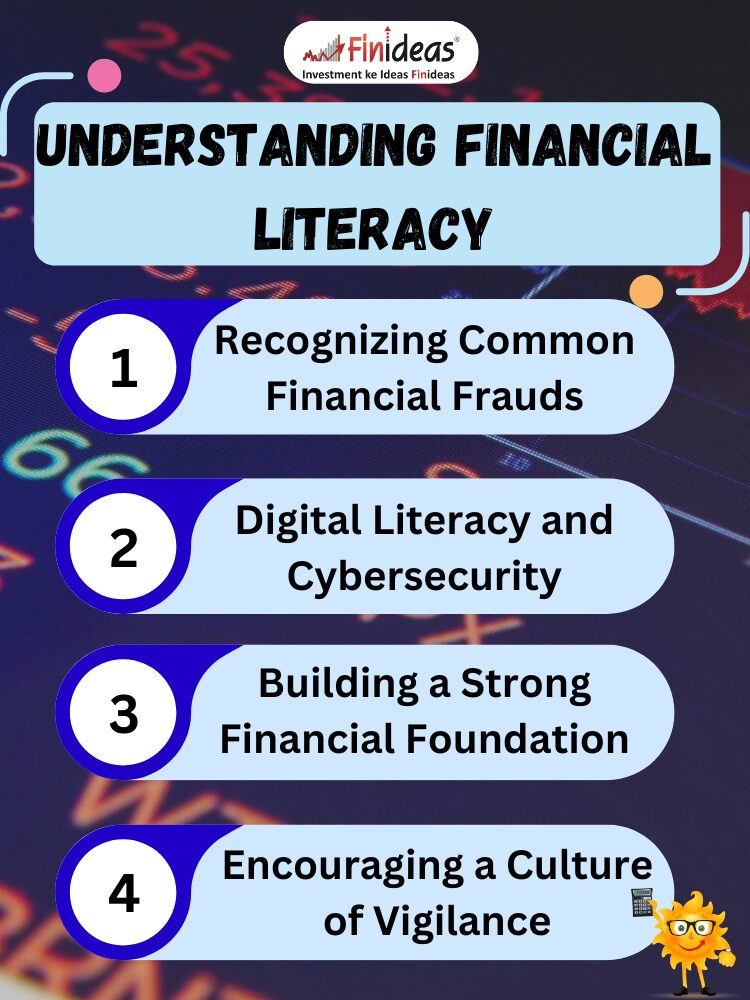Guarding Against Fraud: The Power of Financial Literacy
Introduction
In an era dominated by digital transactions and complex financial instruments, the importance of financial literacy cannot be overstated. Financial literacy goes beyond the basic understanding of budgeting and saving; it encompasses the knowledge and skills necessary to make informed financial decisions and protect oneself from potential risks, including the ever-growing threat of financial fraud. In this blog, we will explore the critical role of financial literacy in safeguarding against financial fraud and why it is an essential tool for individuals in today’s interconnected world.
Understanding Financial Literacy:
Financial literacy involves the knowledge and skills required to make informed and effective financial decisions. It encompasses a range of topics, including budgeting, saving, investing, and understanding financial products and services. A financially literate individual is better equipped to navigate the complexities of the financial world and is less susceptible to falling victim to fraudulent schemes.
One crucial aspect of financial literacy is the alignment with long-term financial strategies. And if you are interested in long term investment , then you must know about Index Long Term Strategy.
Recognizing Common Financial Frauds:
A key aspect of financial literacy is the ability to recognize and understand common financial frauds. Scams such as identity theft, and investment fraud are prevalent in today’s digital age. Financially literate individuals are more likely to identify red flags, question suspicious activities, and protect themselves from falling prey to these scams.
Digital Literacy and Cybersecurity:
Given the increasing prevalence of online financial transactions, digital literacy is an integral part of financial literacy. Understanding how to secure personal information, recognizing phishing attempts, and employing strong cybersecurity practices are essential components of protecting oneself against digital financial fraud. This includes using secure and unique passwords, enabling two-factor authentication, and being cautious with sharing personal information online.
Building a Strong Financial Foundation:
Financially literate individuals are more likely to build a strong financial foundation, which serves as a defense against various financial risks, including fraud. This foundation includes establishing an emergency fund, managing debt responsibly, and making well-informed investment decisions. A solid financial footing provides a buffer against unexpected financial challenges and reduces vulnerability to fraudulent activities.
Encouraging a Culture of Vigilance:
Financially literate individuals are not only equipped with knowledge but also develop a mindset of vigilance. They are more likely to question suspicious offers, verify the legitimacy of financial transactions, and report potential fraud. Cultivating a culture of vigilance within communities contributes to a collective defense against financial fraud.
Conclusion:
In the face of evolving financial landscapes and ever-present threats of fraud, financial literacy emerges as a powerful tool for individual empowerment. By understanding the intricacies of personal finance, recognizing common fraud schemes, and adopting responsible financial practices, individuals can safeguard themselves against financial fraud. It is imperative for societies to invest in education and awareness initiatives that promote financial literacy, ultimately creating a more resilient and secure financial environment for everyone.
How has financial literacy played a role in your own life, and what steps have you taken to protect yourself against potential financial fraud in today’s digital age? Comment down below.
Happy Investing!
This article is for education purpose only. Kindly consult with your financial advisor before doing any kind of investment.


